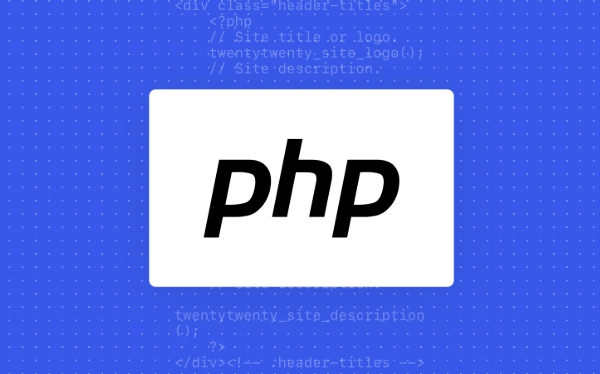The most direct and effective way to prevent SQL injection is to use parameterized queries. 1. Use PDO preprocessing statements to safely bind variables by naming placeholders and execute() methods; 2. Use mysqli's preprocessing function to bind parameters through the placeholders and bind_param() methods; 3. Manual escape strings are not recommended because there are security risks and are outdated; 4. Always verify and filter user input, combined with the framework's built-in security mechanism to enhance security.

In PHP, the most direct and effective way to prevent SQL injection is not simply "escaping strings", but using parameterized queries (preprocessing statements) . Although functions like mysql_real_escape_string may also be seen in old projects, they are outdated and cannot be completely secure.

Here are several modern and recommended practices to safely handle user input in database queries.
Using PDO and preprocessing statements
PDO is a built-in database abstraction layer in PHP, supports multiple database types (such as MySQL, PostgreSQL, etc.), and has built-in support for preprocessing statements.

$pdo = new PDO('mysql:host=localhost;dbname=test', 'user', 'password'); $stmt = $pdo->prepare('SELECT * FROM users WHERE username = :username'); $stmt->execute([':username' => $username]); $user = $stmt->fetch();
-
:usernameis a named placeholder - The
execute()method will automatically bind variables to SQL query and will not be executed as SQL code. - Safe and convenient, it is the current mainstream practice
Preprocessing capabilities using mysqli
If you are still using mysqli extension, you can also use its preprocessing function:
$mysqli = new mysqli('localhost', 'user', 'password', 'test');
$stmt = $mysqli->prepare("SELECT * FROM users WHERE username = ?");
$stmt->bind_param("s", $username);
$stmt->execute();
$result = $stmt->get_result();
$user = $result->fetch_assoc();-
?It is a position placeholder -
bind_param("s", $username)means binding a string type parameter - Can also avoid SQL injection problems
Not recommended: Manual escape strings
If you really need to manually escape strings (such as maintaining old code), you can use mysqli_real_escape_string :

$username = $mysqli->real_escape_string($username);
$query = "SELECT * FROM users WHERE username = '{$username}'";?? Note:
- The database connection must be established before using this function
- Escape only applies to strings, numbers are not needed and should not be escaped
- It is better to use preprocessing statements instead to be safer and more reliable
Tips and common misunderstandings
- Don't write escape logic yourself , it's easy to make mistakes
- Do not trust any user input , including forms, URL parameters, etc.
- Filtering and verification are equally important , for example, you need to use
filter_var($email, FILTER_VALIDATE_EMAIL)for mailboxes. - If you are using frameworks (such as Laravel, Symfony), they are usually encapsulated with secure database operation methods and can be used directly
Basically that's it. Preprocessing statements are not complicated, but they play a huge role in data security.
The above is the detailed content of How to escape a string for a database query in PHP. For more information, please follow other related articles on the PHP Chinese website!

Hot AI Tools

Undress AI Tool
Undress images for free

Undresser.AI Undress
AI-powered app for creating realistic nude photos

AI Clothes Remover
Online AI tool for removing clothes from photos.

Clothoff.io
AI clothes remover

Video Face Swap
Swap faces in any video effortlessly with our completely free AI face swap tool!

Hot Article

Hot Tools

Notepad++7.3.1
Easy-to-use and free code editor

SublimeText3 Chinese version
Chinese version, very easy to use

Zend Studio 13.0.1
Powerful PHP integrated development environment

Dreamweaver CS6
Visual web development tools

SublimeText3 Mac version
God-level code editing software (SublimeText3)

Hot Topics
 What are some best practices for versioning a PHP-based API?
Jun 14, 2025 am 12:27 AM
What are some best practices for versioning a PHP-based API?
Jun 14, 2025 am 12:27 AM
ToversionaPHP-basedAPIeffectively,useURL-basedversioningforclarityandeaseofrouting,separateversionedcodetoavoidconflicts,deprecateoldversionswithclearcommunication,andconsidercustomheadersonlywhennecessary.StartbyplacingtheversionintheURL(e.g.,/api/v
 How do I implement authentication and authorization in PHP?
Jun 20, 2025 am 01:03 AM
How do I implement authentication and authorization in PHP?
Jun 20, 2025 am 01:03 AM
TosecurelyhandleauthenticationandauthorizationinPHP,followthesesteps:1.Alwayshashpasswordswithpassword_hash()andverifyusingpassword_verify(),usepreparedstatementstopreventSQLinjection,andstoreuserdatain$_SESSIONafterlogin.2.Implementrole-basedaccessc
 What are the differences between procedural and object-oriented programming paradigms in PHP?
Jun 14, 2025 am 12:25 AM
What are the differences between procedural and object-oriented programming paradigms in PHP?
Jun 14, 2025 am 12:25 AM
Proceduralandobject-orientedprogramming(OOP)inPHPdiffersignificantlyinstructure,reusability,anddatahandling.1.Proceduralprogrammingusesfunctionsorganizedsequentially,suitableforsmallscripts.2.OOPorganizescodeintoclassesandobjects,modelingreal-worlden
 What are weak references (WeakMap) in PHP, and when might they be useful?
Jun 14, 2025 am 12:25 AM
What are weak references (WeakMap) in PHP, and when might they be useful?
Jun 14, 2025 am 12:25 AM
PHPdoesnothaveabuilt-inWeakMapbutoffersWeakReferenceforsimilarfunctionality.1.WeakReferenceallowsholdingreferenceswithoutpreventinggarbagecollection.2.Itisusefulforcaching,eventlisteners,andmetadatawithoutaffectingobjectlifecycles.3.YoucansimulateaWe
 How can you handle file uploads securely in PHP?
Jun 19, 2025 am 01:05 AM
How can you handle file uploads securely in PHP?
Jun 19, 2025 am 01:05 AM
To safely handle file uploads in PHP, the core is to verify file types, rename files, and restrict permissions. 1. Use finfo_file() to check the real MIME type, and only specific types such as image/jpeg are allowed; 2. Use uniqid() to generate random file names and store them in non-Web root directory; 3. Limit file size through php.ini and HTML forms, and set directory permissions to 0755; 4. Use ClamAV to scan malware to enhance security. These steps effectively prevent security vulnerabilities and ensure that the file upload process is safe and reliable.
 What are the differences between == (loose comparison) and === (strict comparison) in PHP?
Jun 19, 2025 am 01:07 AM
What are the differences between == (loose comparison) and === (strict comparison) in PHP?
Jun 19, 2025 am 01:07 AM
In PHP, the main difference between == and == is the strictness of type checking. ==Type conversion will be performed before comparison, for example, 5=="5" returns true, and ===Request that the value and type are the same before true will be returned, for example, 5==="5" returns false. In usage scenarios, === is more secure and should be used first, and == is only used when type conversion is required.
 How can you interact with NoSQL databases (e.g., MongoDB, Redis) from PHP?
Jun 19, 2025 am 01:07 AM
How can you interact with NoSQL databases (e.g., MongoDB, Redis) from PHP?
Jun 19, 2025 am 01:07 AM
Yes, PHP can interact with NoSQL databases like MongoDB and Redis through specific extensions or libraries. First, use the MongoDBPHP driver (installed through PECL or Composer) to create client instances and operate databases and collections, supporting insertion, query, aggregation and other operations; second, use the Predis library or phpredis extension to connect to Redis, perform key-value settings and acquisitions, and recommend phpredis for high-performance scenarios, while Predis is convenient for rapid deployment; both are suitable for production environments and are well-documented.
 How do I perform arithmetic operations in PHP ( , -, *, /, %)?
Jun 19, 2025 pm 05:13 PM
How do I perform arithmetic operations in PHP ( , -, *, /, %)?
Jun 19, 2025 pm 05:13 PM
The methods of using basic mathematical operations in PHP are as follows: 1. Addition signs support integers and floating-point numbers, and can also be used for variables. String numbers will be automatically converted but not recommended to dependencies; 2. Subtraction signs use - signs, variables are the same, and type conversion is also applicable; 3. Multiplication signs use * signs, which are suitable for numbers and similar strings; 4. Division uses / signs, which need to avoid dividing by zero, and note that the result may be floating-point numbers; 5. Taking the modulus signs can be used to judge odd and even numbers, and when processing negative numbers, the remainder signs are consistent with the dividend. The key to using these operators correctly is to ensure that the data types are clear and the boundary situation is handled well.






